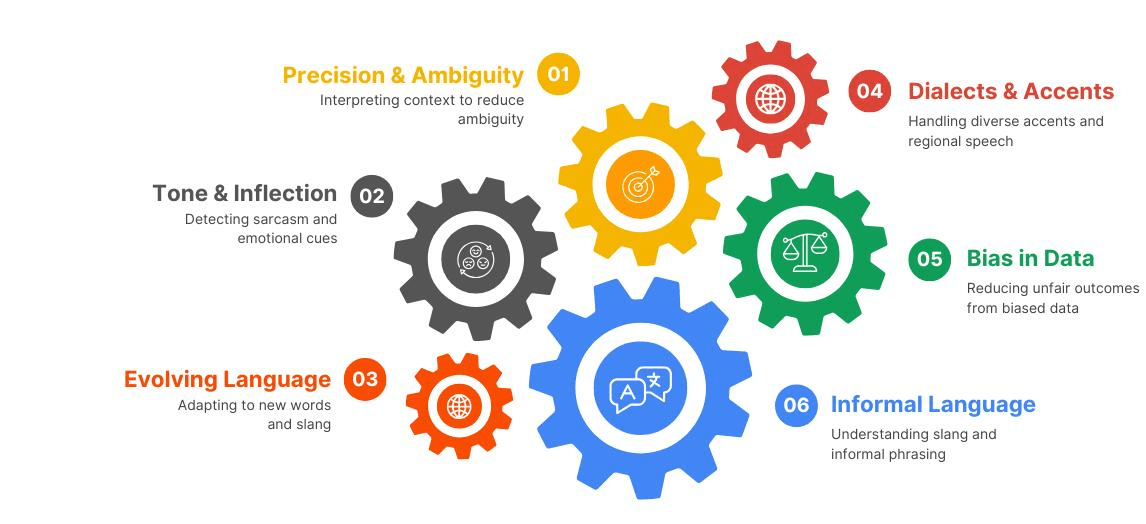
- Introduction to Data Science
- 5 levels encompass diverse strategies
- Data Science Trends in 2025
- AI and Machine Learning
- Natural Language Processing (NLP) Advancements
- Advancement in Data Privacy and Security
- Data Science Job Trends in 2025
- Conclusion
Eager to Acquire Your Data Science Certification? View The Data Science Course Offered By ACTE Right Now!
Introduction to Data Science
In today’s technology-pushed world, facts are an uncooked diamond, and Data Science is the mining infrastructure set-up that makes the facts beneficial for remodeling the world. Without the presence of a full-size quantity of facts, self-regulating structures can’t be created. So, Data Science in 2025 might be about crunching enormous amounts of facts for Business Analytics. In simple words, Data Science is the complete analysis of data gathered by diverse corporations for their commercial purposes, and Data Science Training equips individuals with the skills to evaluate this data using various analytical tools as it flows across the Internet. To recognize the essence of Data Science, here’s the Data Science existence cycle. A Data Science Life Cycle is a unique approach incorporating five crucial segments that begin with fact extraction and give up with interpretation. These 5 levels encompass diverse strategies, and every segment represents a project that scientists do to derive quality viable results.
5 levels encompass diverse strategies
- Data Extraction: Data Extraction is a method to acquire or extract all facts and statistics from facts assets for subsequent processing or evaluation.
- Scrubbing Data: Scrubbing Data is where the facts might be cleansed, and all of the replica and inappropriate facts might be removed. This method is crucial because the facts entail diverse secondary statistics that desire to be eliminated.
- Data exploration: Data exploration is the number one step for facts evaluation, and it entails exploring and Data Visualization facts to find insights immediately or suggest areas or traits to analyze further.
- Model Building: Data Scientists recognize facts and derive significant results within the model-constructing method. This entails putting in fact series methods, comprehending and noticing what’s applicable within the facts, and choosing a statistical, mathematical, or simulation version to accumulate perception and make predictions.
- Data interpretation: This involves growing an affordable clinical argument to understand the facts and making use of the inferences to get a conclusion

Data Science Trends in 2025
In today’s fast-paced digital era, Data Science has become one of the most in-demand and evolving skill sets across various industries. As organizations increasingly depend on data-driven strategies for critical decision-making, the need for proficient Data Scientists continues to grow rapidly. One of the most effective ways to build expertise in this cutting-edge field is by enrolling in an industry-relevant Information Technology program based in Bangalore that offers comprehensive Data science Training. This well-rounded course is designed to provide learners with a solid grounding in data analytics, machine learning, artificial intelligence, and big data tools. With a strong emphasis on hands-on training, real-time projects, and mentorship from seasoned professionals, participants gain valuable practical experience and insights into real-world challenges. Whether you’re a recent graduate or a professional aiming to shift into the Data Science domain, this program delivers the knowledge, skills, and support necessary to excel in this rapidly expanding career landscape.
AI and Machine Learning
- Artificial Intelligence (AI) is the generation that allows machines to think, examine, and make choices like humans.
- It lets computer systems carry out duties, spotting speech, reading information, fixing issues, or even making predictions.
- Machine Learning (ML) is a department of Artificial Intelligence (AI) that lets computer systems examine information and enhance their overall performance without being explicitly programmed.
- Instead of following constant instructions,ML algorithm examine styles in information and make predictions or choices.
- This technology assists companies in automating techniques and making more intelligent choices.
- In 2025, extra industries will undertake AI-pushed answers for higher performance and innovation.
- Edge Computing and IoT: Edge computing lets you technique information toward its source, decreasing delays and enhancing performance. When blended with IoT, it allows real-time analytics, assisting industries like healthcare, clever cities, and production functions quicker and smarter.
- Explainable AI (XAI): As AI becomes more complicated, you want more transparency to understand its choices. Explainable AI (XAI) allows you to see how AI models work, making them more trustworthy. This is crucial in fields like finance, healthcare, and law, where clean motives are critical for adoption and reliability.
- Quantum Computing in Data Science: Quantum computing offers the power to remedy complicated issues much quicker than conventional computer systems. In information technology, it will rework areas like cryptography, optimization, and large-scale simulations, assisting you in resolving demanding situations that were previously impossible.
- Advancement in Data Privacy and Security: These days, corporations manage a massive quantity of information, and maintaining it steady is a chief challenge. You want to be privy to cyber threats and information breaches that may put sensitive records at risk. Data technology allows for using reading styles, detecting anomalies, and stopping protection threats with superior algorithms and AI-pushed answers.
Ready to Earn Your Data Science Certificate? View The Data Science Course Offered By ACTE Right Now!
Natural Language Processing (NLP) Advancements
NLP enhances how machines apprehend and enhance human language techniques. With improvements in chatbots, voice assistants, and sentiment analysis, Natural Language Processing will play a larger position in customer support and commercial enterprise intelligence.
Are You Considering Pursuing a Data Science Master’s Degree? Enroll For Data Science Master Course Today!
In addition, information is beginning up a variety of routes for Big Data Scientist in all central authorities and personal sectors worldwide. We can now examine the regions wherein jobs could be created inside Data Science in 2025.

Data Science Job Trends in 2025
Data Science is rapidly transforming multiple industries, with healthcare being one of the foremost beneficiaries. It helps monitor patient health, detect disease patterns, and support doctors in making accurate diagnoses and treatment plans. The healthcare sector increasingly relies on Data Engineers to develop automated systems capable of analyzing complex medical data, which is projected to create around 20,000 new jobs by 2025. In aviation and airlines, data is used to optimize pricing, routes, and maintenance schedules, with Data Scientists analyzing variables such as flight routes, aircraft specifications, and weather conditions—an area expected to add over 3,000 jobs. Cybersecurity has also seen a surge in demand for data-driven solutions to identify and prevent fraudulent activity, and is anticipated to generate more than 5,000 Data Science roles.
Set to Ace Your Microsoft Azure Job Interview? Check Out Our Blog on Data Science Interview Questions & Answer
In genomics, Data Science aids in decoding and understanding DNA, paving the way for major advancements in medicine and creating new job opportunities. The automotive industry, especially with the rise of autonomous vehicles, is expected to require up to 25,000 Data Science professionals by 2025. Software development continues to be one of the most common applications, using data science and machine learning to build intelligent development tools, leading to a projected demand of over 100,000 roles. Lastly, the booming e-commerce sector relies heavily on consumer data to enhance customer experiences and drive sales, and with over 273,000 companies worldwide, it’s poised to create a vast number of Data Science jobs. Given this widespread impact, upskilling in Data Science can lead to a highly rewarding and future-proof career.
Conclusion
In this blog, we’ve explored the future scope of data science in 2025 and beyond. We have also examined the growing importance of data science in today’s digital ecosystem, delved into the data science lifecycle, and highlighted the diverse professional opportunities that this dynamic field offers. Data science has emerged as one of the most in-demand skill sets across various industries, primarily because it empowers organizations to make smarter, faster, and more informed decisions through effective use of data, and Data Science Training plays a crucial role in preparing professionals to meet this growing demand. From analyzing consumer behavior to optimizing operations, data-driven insights are revolutionizing how businesses operate. As a result, there is an increasing demand for skilled professionals who can gather, clean, analyze, and interpret large volumes of structured and unstructured data to uncover actionable insights. With the rapid advancement of technologies like artificial intelligence, machine learning, and big data, the role of data scientists is becoming even more crucial. Many organizations are actively seeking experts who not only possess strong technical knowledge but also have the domain expertise to apply data science solutions to real-world challenges. As technology continues to evolve, the demand for data scientists and data professionals will only grow, making it a highly promising and future-proof career path for those who choose to upskill and enter this exciting field./p>


